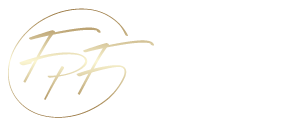Currency buying and selling takes place in the famous financial sector known as forex trading. Traders must open an account with a broker and fund it to engage in forex trading. An account that has been funded with forex is one that the trader can use to execute transactions on the foreign exchange market.
To safeguard the security and protection of traders, some rules and regulations govern the use of these forex funded accounts. As an investment needs security and affirmation, you can only trust a highly reliable Forex firm for this purpose. At Forex Prop Firm, we are proud of our highly qualified and skilled team of experts.
We make sure that we help each Forex trader in such a way that they get the most out of their investment. Our objective is to maximize the output by paying attention to specific strategies and techniques of Forex trading. However, the significance of the rules and regulations of Forex trading cannot be taken for granted.
The guidelines for accounts funded with foreign currency will be covered in this blog article.
All You Need to Know About Forex Funded Accounts, Their Rules, And Regulations
Need for a small deposit
At the Forex Prop Firm, the trader has to make a small investment by purchasing a challenger type from us. The required minimum investment can be anywhere from a few hundred to tens of thousands of dollars. Our expert analysts assess the traders’ potential with different challenges and come up with the most appropriate selection for you.
Leverage Limits
Forex traders use leverage as a strategy to increase their exposure to the market. Trading with a higher position size than what their account balance would permit is made possible. However, the risk of losing money also rises when using leverage. To prevent traders from taking on excessive risk, brokers have leverage restrictions.
The leverage limit varies depending on the broker and can range from 1:50 to 1:500.
Needs for Margin
To open a position in the market, traders must deposit a certain amount of money with their broker. The amount of margin needed varies by the broker and the currency pair being traded. Often, the margin requirement is expressed as a portion of the total trade size. Margin requirements are put in place by brokers to make sure that traders have enough money to cover any potential losses.
Stop Loss Orders
Orders known as stop-loss orders are used by traders to reduce their losses. If the market reaches a specific level after a trader places a stop-loss order, the trade is automatically closed. To protect themselves from big losses, brokers mandate that traders utilize stop-loss orders.
Trading Timing
The forex market is open five days a week, twenty-four hours a day. On occasion, though, like weekends and holidays, the market is shut. Traders holding a Forex Funded Account should be aware that brokers have distinct trading hours. For various currency pairs, some brokers could also have various trading hours.
Spread
A currency pair’s spread is the distinction between the ask and bid prices. The spread is how brokers profit, and when traders place trades they must be aware of the spread. The spread varies according to the broker and the trading currency pair.
Policies for Withdrawals
The money in a trader’s Forex Funded Account is always available for withdrawal. Nonetheless, traders may need to adhere to any withdrawal policies that brokers may have. Some brokers could demand that traders withdraw money using the same procedure they used to deposit money. Brokers may likewise levy withdrawal fees.
Maintenance Fees for Accounts
Trading account maintenance fees may be assessed by some brokers. Depending on the broker, these fees may be assessed on a monthly or annual basis. While picking a broker and creating a funded account, traders need to be aware of these fees.
KYC Procedures
Know Your Client (KYC) guidelines must be followed by brokers. KYC procedures are intended to stop financial crimes like money laundering. Traders are required to give the broker their personal information, including their name, address, and proof of identity. Additionally, brokers could ask traders for details about their financial situation and trading history.
Observing Regulations
Financial regulators in each country have jurisdiction over brokers. Regulations are enforced by regulatory authorities, who also defend merchants against fraud and other financial crimes. Investors should select a broker that is overseen by a respected financial organization.
Conclusion
Forex trading can be a profitable venture, but it also involves risks and careful assessment. Therefore, selecting the right firm to assist you in trading is one of the most significant steps in getting into the market. As it is an extensive field, and you might need the expertise of experienced professionals, do not refrain from asking questions.

